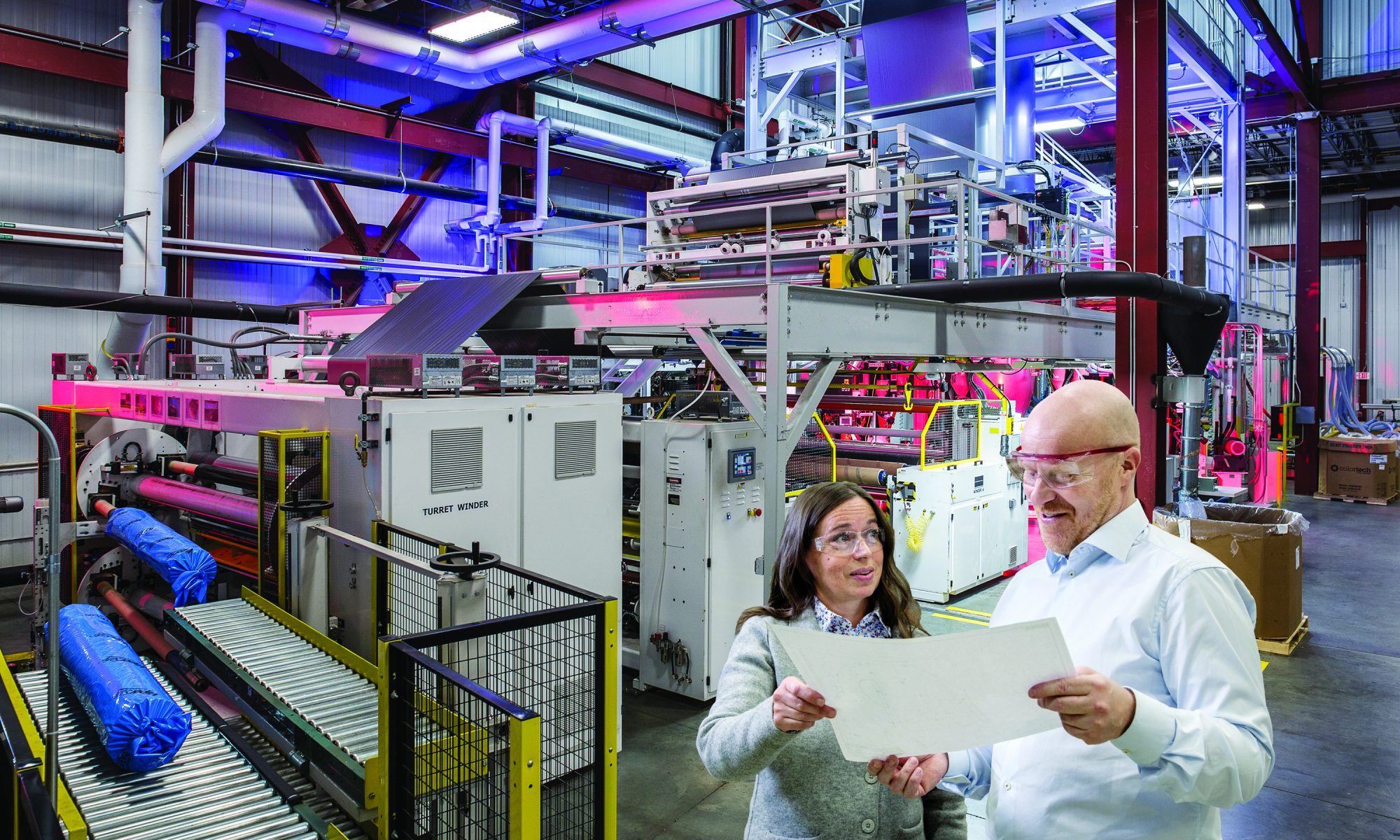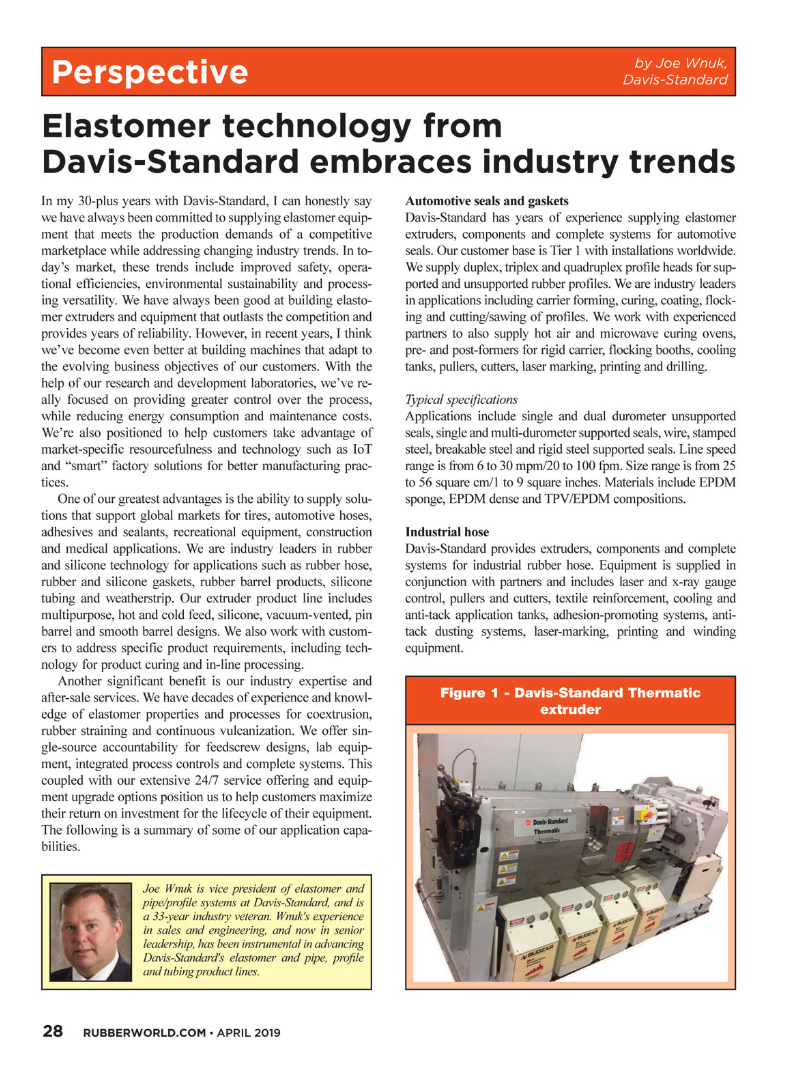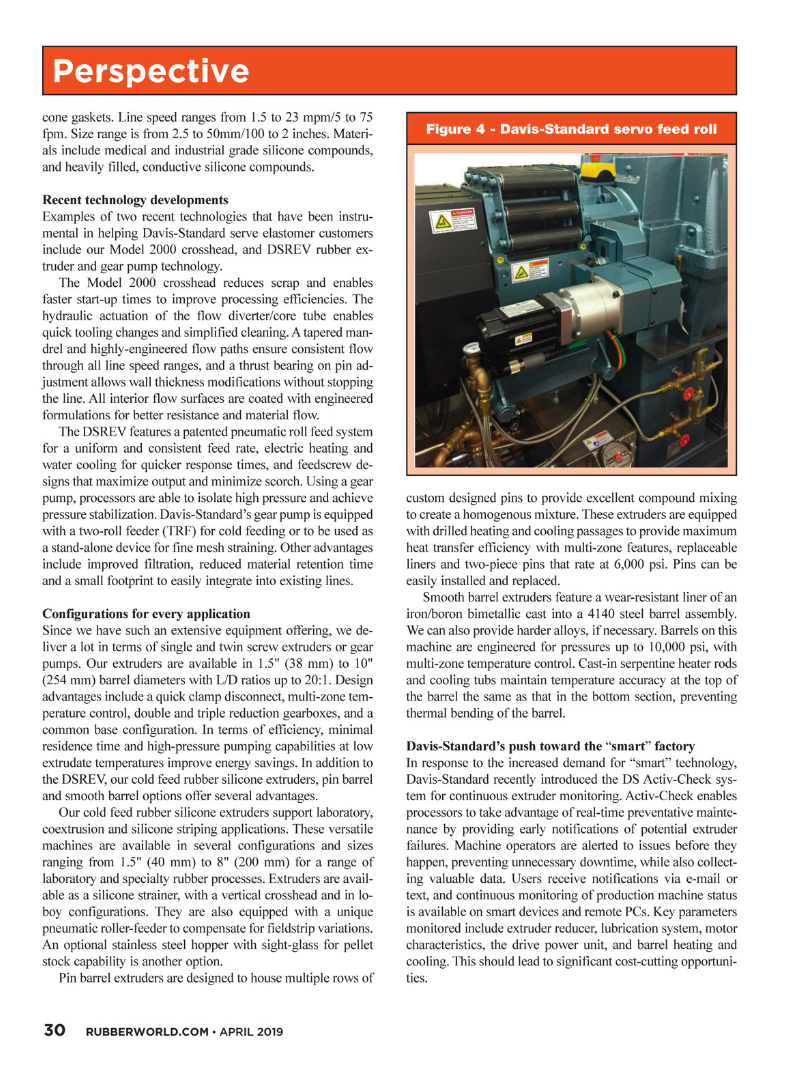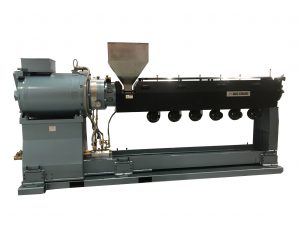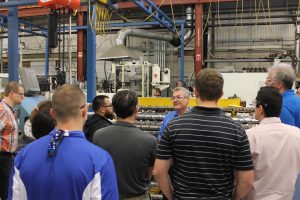Recent News
Past News
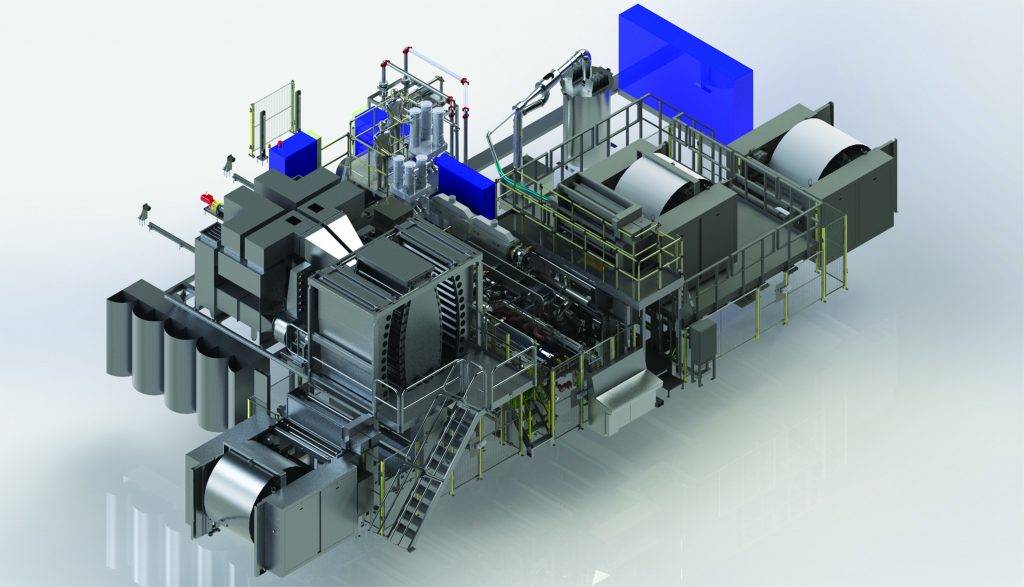
Davis-Standard, LLC will promote the company’s equipment innovation and regional growth at Hall 9.2, Booth J41, during CHINAPLAS 2019 in Guangzhou, May 21-24, alongside its subsidiaries Maillefer and Brampton Engineering. Davis-Standard will share information about its recent acquisitions, Suzhou facility expansion, DS Activ-Check system for continuous extruder monitoring, dsX flex-pack™ technology and stretch film capabilities. Davis-Standard will also exhibit a HPE-100H, 1” 24:1 extruder.
The acquisition of Brampton in 2018 augmented the company’s multi-layer film processing and winding technology for blown film applications. TSL (Thermoforming Systems LLC), also added in 2018, is the market leader in thermoforming equipment for high-volume packaging applications. TSL fits nicely with Davis-Standard’s continued growth in the packaging sector. Maillefer, acquired in 2017, expanded the company’s wire and cable, pipe and tube equipment offering, and added facilities in Finland and Switzerland to better serve customers, including those in China.
Davis-Standard’s Suzhou location is expanding this year. The additional 35,000 square-foot (3,251 square-meter) facility near the existing shop in Suzhou will house control panel assembly and provide much-needed warehousing. The addition reflects Davis-Standard’s strong extrusion coating business and long-term strategy in the region. Suzhou is also home to an R&D laboratory that supports Asia’s medical market. This capability has been an asset to customers, and an excellent tool for supporting development of new resins and biodegradable products.
In response to the increased demand for “smart” technology, Davis-Standard recently introduced the DS Activ-Check system for continuous extruder monitoring. DS Activ-Check enables processors to take advantage of real-time preventative maintenance by providing early notifications of potential extruder failures. Machine operators are alerted to issues before they happen, preventing unnecessary downtime while also collecting valuable data. Key parameters monitored include extruder reducer, lubrication system, motor characteristics, the drive power unit, barrel heating and cooling.
The latest dsX flex-pack™ model being promoted is the 300S. This single station extrusion and laminating line is designed specifically for the Asian flexible packaging market. It is a collaboration among Davis-Standard’s teams in the U.S., Germany and China, addressing the pricing, machine footprint, speeds and output, and shorter runs demanded by converters. Davis-Standard is also engineering a tandem configuration of this machine called the dsX flex-pack™ 300T. The dsX flex-pack™ 300S will be available for demonstration in Suzhou later this year.
For stretch film applications, Davis-Standard offers a stretch film line equipped with a DS S3 winder. The line offers a compact machine arrangement, ease of servicing, excellent profile control, consistent roll quality and an intuitive control package. It is engineered for producing thin films from 31-to 51-gauge (7.8µ to 13µ) at high speeds. The side-by-side DS S3 overlapping winder is essential to this capability, enabling maximum slit widths for hand-wrap, machine-wrap and jumbo rolls. This winder also makes it possible for converters to support multiple market segments on one winder.
The HPE-100H extruder being shown is an example of Davis-Standard’s performance engineering for versatility, long-term market value and an attractive return on investment. This extruder is designed for co-extrusion and multi-layer applications, and is available with a variety of DSB® feedscrew designs depending on the application. Advantages include a small footprint, high-torque capacity to handle a variety of resins and a direct coupled motor. Models are available in ¾-inch (20mm) to 1.75 (45mm) inches with L/D’s in 24:1 or 30:1. For added support, the extruder comes with a three-year warranty.
For more information about Davis-Standard prior to Chinaplas, visit www.davis-standard.com.
PHOTO CAPTION: Pictured is the dsX flex-pack™300S.
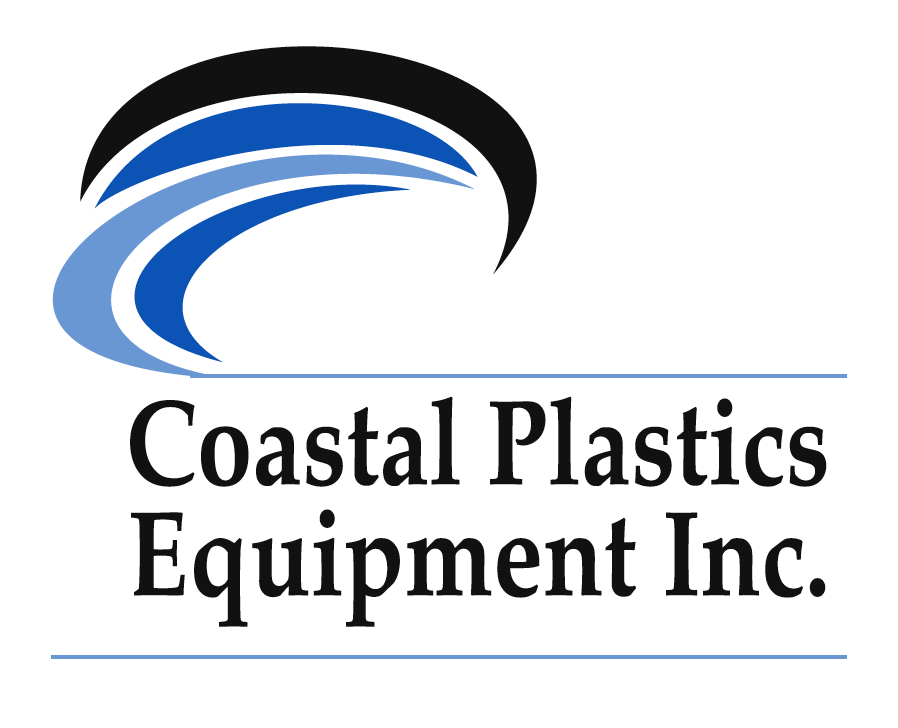
Davis-Standard, LLC is pleased to announce it has signed an agreement with Coastal Plastics Equipment Inc. to act as a sales representative for the company’s pipe, profile and tubing and elastomer product lines in New England and upstate New York. Coastal Plastics has locations in Hampton, NH., Leominster, MA., and Burlington, CT. Three Coastal representatives with more than 70 years of combined industry experience will serve Davis-Standard customers.
Fred Charpentier, owner of Coastal Plastics, will support customers in Maine, New Hampshire, northeast and central Massachusetts. Ed Freier will be responsible for upstate New York, Vermont, western Massachusetts and western/central Connecticut. Chris Charpentier will cover southeast Massachusetts, Rhode Island and eastern Connecticut.
“We are pleased to bring Coastal Plastics on board as a sales representative,” said John Politis, Davis-Standard product manager for pipe, profile and tubing. “Fred, Ed and Chris bring tremendous experience and expertise that will serve our customer base well. We look forward to working with them to serve customers.”
For more information about Davis-Standard’s pipe, profile and tubing and elastomer systems, visit www.davis-standard.com/extrusion_system/pipe-profile-and-tubing/ and www.davis-standard.com/extrusion_system/elastomer/.
Photo Caption: Coastal Plastics Logo
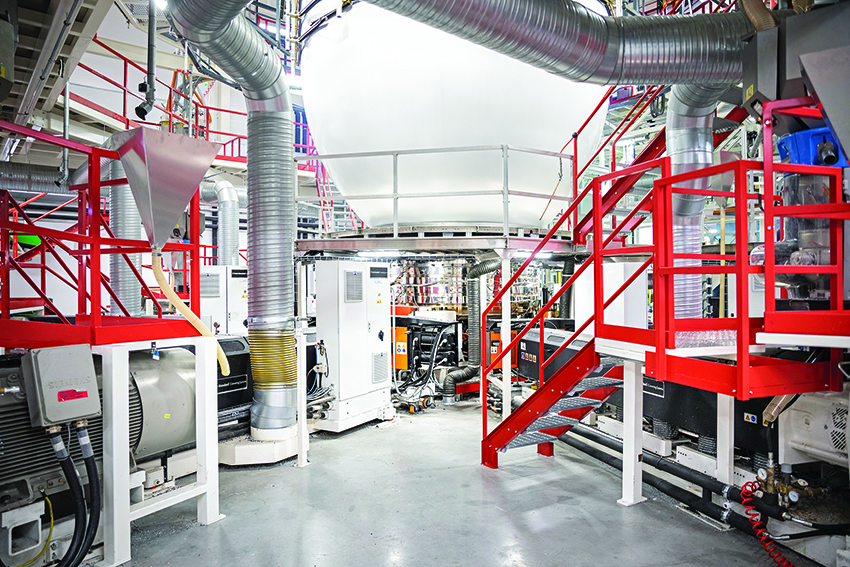 In only two years since installing a seven-layer Davis-Standard blown film line, Rani Plast of Finland is experiencing profitable outcomes for its agricultural film operation. Since the line’s start-up in August of 2016, Rani Plast has expanded its family-run business by optimizing production, developing its distributor network and introducing new products. At the time of installation, this was the largest seven-layer blown film line Davis-Standard had ever built for a customer.
In only two years since installing a seven-layer Davis-Standard blown film line, Rani Plast of Finland is experiencing profitable outcomes for its agricultural film operation. Since the line’s start-up in August of 2016, Rani Plast has expanded its family-run business by optimizing production, developing its distributor network and introducing new products. At the time of installation, this was the largest seven-layer blown film line Davis-Standard had ever built for a customer.
“Before this line, we lacked capacity and were limited to film widths of 18 meters. Being able to run expanded widths has given us access to new distributors and end customers,” explained Mikael Ahlback, Group CEO of Rani Plast. “It has also given us greater flexibility to react on immediate demands from customers, shortening lead times. We’re able to offer new products such as EVOH-based barrier films that will be available in the next agricultural season. This product will be sold as an underlay film as well as a conventional silage film to help customers make better silage than before.”
Ahlback explained the demand for silage films, one of Rani Plast’s largest markets, has risen due to the increased size of farming operations. Silage film provides an economical way to preserve and protect feed for animals. The seven-layer structure has helped Rani Plast optimize mechanical film properties for this film in a manner not previously possible. In addition to silage, Rani Plast uses the seven-layer line for making wider films used in covering peat and turf.
The line’s design is a reflection of careful planning and customized engineering. A 2.3-meter, seven-layer Centrex IBC die has been an integral part of performance. This die supports enhanced film quality while providing Rani Plast with versatility for their diverse portfolio. This includes the capacity to process high-quality films with optimized coextrusion ratios for thicker skin layers and low-percentage core layers for barrier-based structures, as well as non-barrier structures using a variety of polymer blends. The die and tower are capable of producing a bubble up to 23 meters unfolded at high-output rates with a dual-lip, automatic profile control air ring. The line’s seven Davis-Standard MAC extruders are fitted with DSB® feedscrews for homogenous mixing and low-temperature melt streams, essential to film quality and the production of large width films.
“A big part of our success was the support of Davis-Standard during installation, the initial start-up period and optimization of the line” said Ulf Sandvik, Project Manager at Rani Plast. “We’ve had to make some adjustments, but the cooperation between our companies has been excellent. Both of us have gained new experience, and we have been very pleased with this investment.”
For more information about Rani Plast, visit www.raniplast.com. For more information about Davis-Standard’s blown film capabilities, contact Carl Johnson at cjohnson@davis-standard.com.
Photo Caption: Rani Plast installation
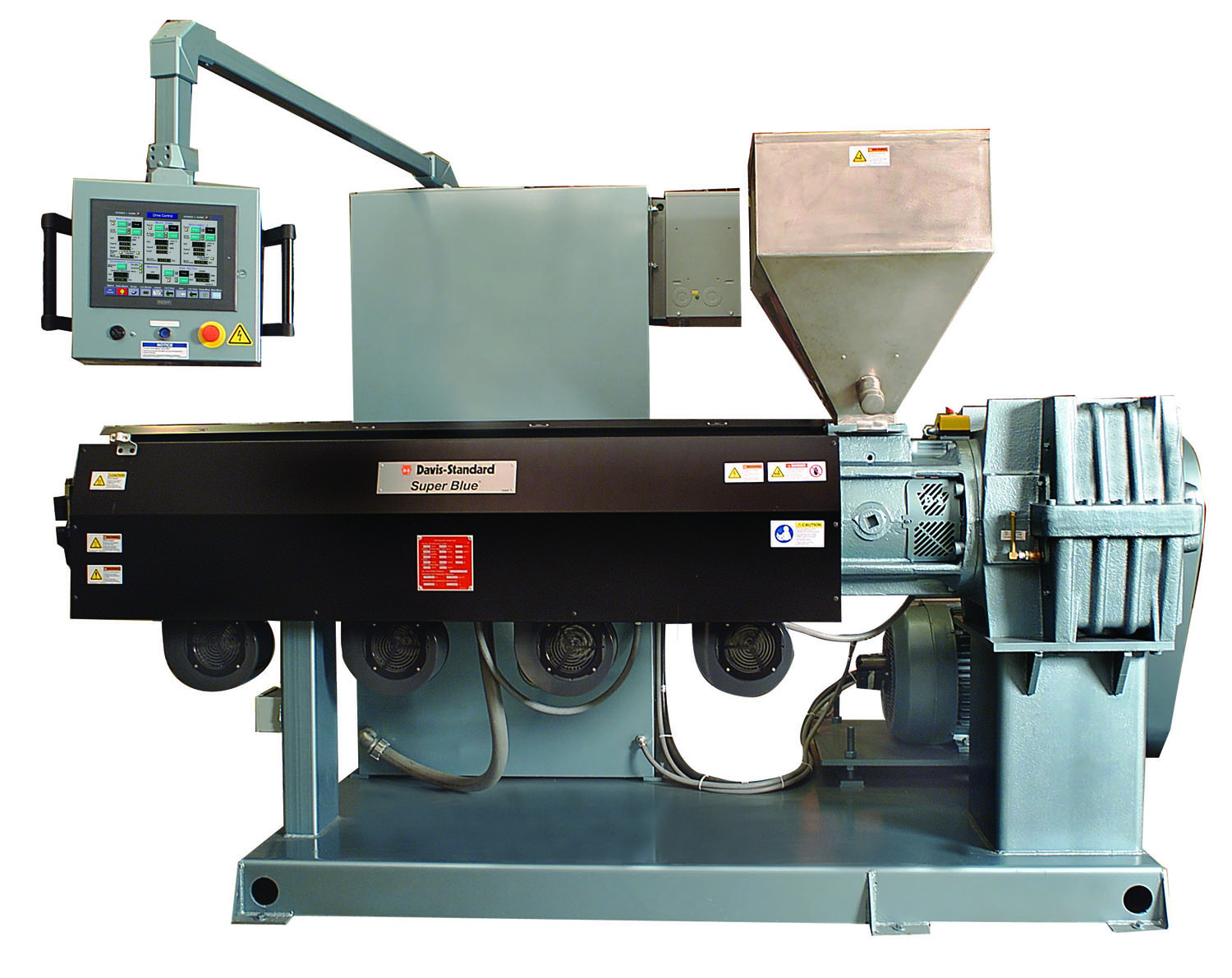
Davis-Standard, LLC will promote the company’s full line of extrusion and converting technology during PLASTIMAGEN MÉXICO® in Mexico City, April 2-5. Davis-Standard’s team will be available at booth #3014 with Bernal Industrial to discuss pipe, profile and tubing and elastomer; and at booth #1014 with Grupo Janfrex to discuss film, sheet, reclaim and foam. The team will also promote aftermarket capabilities and new developments in extruder, control and feedscrew technology. Examples include:
Aftermarket Capabilities – Davis-Standard’s ability to service equipment for nearly every extrusion and converting application, including non-Davis-Standard brands, is one of the company’s greatest advantages. This includes an extensive spare parts inventory, timely 24/7-customer service, global technical capabilities, and rebuild and retrofit services.
Super Blue® Extruder – This high-efficiency extruder offers advantages in price, performance and fast delivery. The Super Blue is equipped with preferred features including a low noise, high-torque double reduction gearbox; cast aluminum finned heaters bolted to the barrel; an AC drive and motor; and a high capacity air-cooling system. It has been an effective option for pipe and profile, sheet, fiber and specialty system processes, among others.
MEDD Extruder – This compact extruder is optimized for cleanroom environments with a replaceable feed section liner and direct drive technology for greater efficiency and materials flexibility. Davis-Standard offers a high-tech melt pump system to maximize stability when processing sensitive materials.
Davis-Standard supports applications for Alternate Polymer®, microbore tubing, multi-lumen and catheter tubing, endotracheal and tracheotomy tubing, radio-opaque tubing, bubble tube, taper tube, pipette tubing and multi-layer tubing, among others. Turn-key medical tubing systems support extruder outputs up to 700 pounds per hour (315kg/hr) and line speeds up to 800 feet per minute (240 mpm) for a range of materials including PLA, PLLA, PEEK, FPVC, polyurethane, nylon, PEBAX and FEP. Davis-Standard supplies versatile extruder options depending on process and application, including the direct-drive MEDD extruder, small-footprint HPE-A and HPE-H extruders, and the high-performance Super Blue® extruder. All extruders are engineered for a fast delivery and competitive pricing. For added precision, Davis-Standard offers a high-tech melt pump to minimize heat exposure and for exacting temperature control and pressure.
Sheet Extrusion – Davis-Standard supplies complete systems and components to support the packaging and industrial sectors. One recent development is the DS-Helibar® extruder. This extruder is the next generation in Davis-Standard’s groove feed extruder offering. With the Helibar design, helical grooves inside the barrel run along the entire barrel bore. This technology has been shown to increase extruder output rates while improving energy efficiency and reducing barrel and screw wear. Other advantages include lower start-up costs, shorter residence time and the ability to process higher levels of regrind. These are especially beneficial for high-profile applications where speed, melt quality and efficiency are paramount.
As a complement to its sheet extrusion technology, Davis-Standard recently acquired Thermoforming Systems LLC (“TSL”) of Union Gap, Washington. TSL (www.tslusa.biz) designs, manufactures and markets thermoforming equipment to the food packaging industry.
Cast Film – Davis-Standard offers a stretch film line that redefines modular efficiency for high-grade film operations. This technology is the new standard for stretch film line configurations. Advantages include a compact machine arrangement, ease of operation and servicing, excellent profile control, consistent roll quality and an intuitive control package. The system is engineered for producing thin films from 7.8µ to 13µ (31-to 51-gauge) at high speeds.
Davis-Standard’s side-by-side DS S3 overlapping winder is essential to this capability. The DS S3 winder enables maximum slit widths for hand-wrap, machine-wrap and jumbo rolls. All rolls are discharged on the downstream end of the winder and are conveyed to a common side of the line to simplify roll packing and future automation. There is an auxiliary lay-on roll to eliminate top-wind waste during transfer, optimizing roll quality and eliminating outer wrap transfer waste. There is a 30-second cycle time regardless of the number of slit widths, ideal for hand-wrap products.
Specific to CPP films, Davis-Standard offers the horizontal ironing roll winder. This winder has an adjustable ironing roll which allows the converter to control the amount of air introduced into the winding roll, substantially reducing “tin canning,” a common issue when running CPP.
Blown Film - Davis-Standard supplies extrusion systems for applications in high-barrier food packaging, agricultural films, geomembrane, stretch film, printing and laminating films, flexible packaging, collation shrink films and stretch hooders. For films that require enhanced clarity and flexibility, Davis-Standard offers the Aquafrost® water-quench system. Other options include industry-leading Vector® air rings, DSB® feedscrew designs, and Streamlined Coextrusion Die (SCD®), Optiflow and Vertex dies, each designed to process specific films.
Davis-Standard also supplies downstream and terminal equipment as well as MDO’s, oscillating haul-offs, and winders to optimize web handling and output goals. These solutions can accommodate standard applications as well as complex substrates and structures requiring precise tension control to ensure quality while minimizing waste. Automation options are available to reduce cycle time and augment benefits from increased outputs.
For more information prior to Plastimagen, visit www.davis-standard.com.
Photo Caption: Super Blue extruder
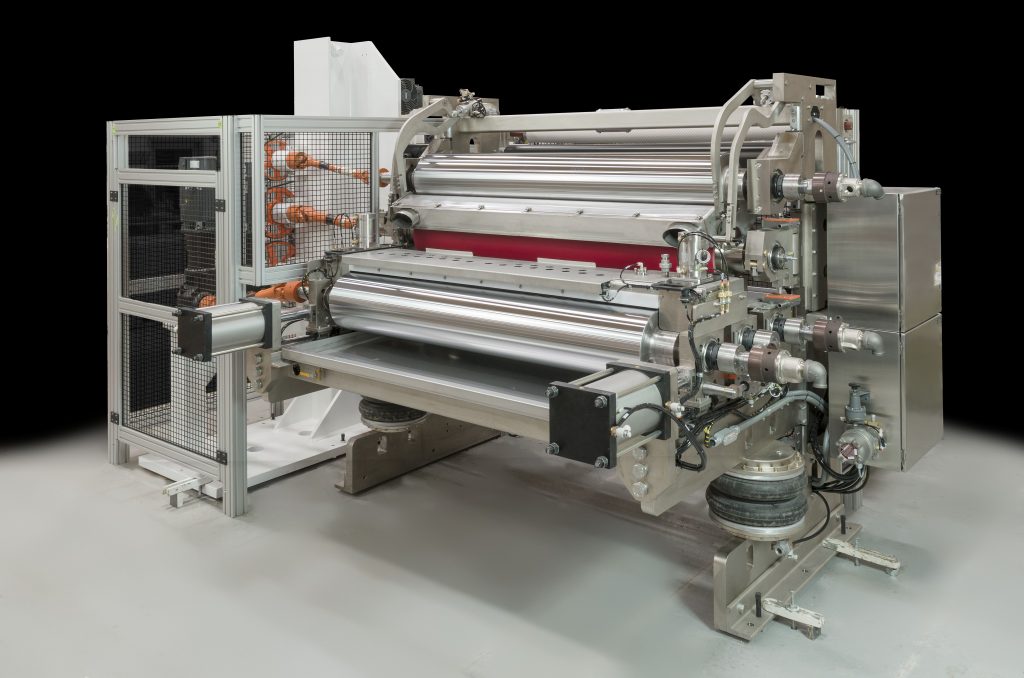 Davis-Standard’s converting technology and support services will be promoted at ICE USA, booth #619, in Lousiville, Kentucky April 9-11, 2019. Davis-Standard will highlight key equipment capabilities for extrusion coating, liquid coating, blown film and cast film, all engineered to support a range of applications on every continent. Davis-Standard will also have information on aftermarket and technical services focused on delivering cost-efficiency, reduced downtime and improved operation. This includes equipment upgrades, replacement parts, global field services, custom engineering, research and technical services, and a 24/7 customer service hotline. Following is a summary of key technologies in Davis-Standard’s product portfolio.
Davis-Standard’s converting technology and support services will be promoted at ICE USA, booth #619, in Lousiville, Kentucky April 9-11, 2019. Davis-Standard will highlight key equipment capabilities for extrusion coating, liquid coating, blown film and cast film, all engineered to support a range of applications on every continent. Davis-Standard will also have information on aftermarket and technical services focused on delivering cost-efficiency, reduced downtime and improved operation. This includes equipment upgrades, replacement parts, global field services, custom engineering, research and technical services, and a 24/7 customer service hotline. Following is a summary of key technologies in Davis-Standard’s product portfolio.
The company’s extrusion coating product line offers a comprehensive equipment offering from a single-source supplier to address basic applications all the way up to high-speed, complex requirements. Systems are engineered for everything from high-quality flexible packaging, thermal lamination and stand-up pouches, to lidding, tube, and aseptic films. Specifications can be customized based on market requirements and investment plans.
An example of this is Davis-Standard’s dsX flex-pack™ system. This machine provides converters and package printers with a high-value, competitively-priced package. An adaptable machine configuration gives processors the flexibility to compete in a variety of emerging application markets including salted snack and noodle bags, toothpaste tubes, personal care products, condiment packs and stand-up pouches. Production benefits include product consistency, excellent bonding strength, greater uptime and productivity, and reduced waste and production costs. The economic benefit of these 1,500 fpm (450 mpm) machines is enabling many regional converters to distinguish themselves from the competition.
In liquid coating, Davis-Standard’s curtain slide coater and five-roll silicone coater combine versatility with performance. The curtain slide coater applies single layer coatings at rates up to 2800 fpm (853 mpm) with expansion capabilities up to two additional layers. The five-roll silicone coater is capable of applying 100 percent silicone at rates up to 2400 fpm (732 mpm). This coater is constructed of stainless steel for ease of cleanup and includes a mist removal system. Davis-Standard supports liquid coating for slow or high-speed applications, clean room environments, film or paper substrates, ultra-thin and ultra-thick coatings, and precision coating and drying.
In cast film, Davis-Standard offers a stretch film line that redefines modular efficiency for high-grade film operations. This technology is the new standard for stretch film line configurations. Advantages include a compact machine arrangement, ease of operation and servicing, excellent profile control, consistent roll quality and an intuitive control package. The system is engineered for producing thin films from 31-to 51-gauge (7.8µ to 13µ) at high speeds.
Davis-Standard’s side-by-side DS S3 overlapping winder is essential to this capability. The DS S3 winder enables maximum slit widths for hand-wrap, machine-wrap and jumbo rolls. All rolls are discharged on the downstream end of the winder and are conveyed to a common side of the line to simplify roll packing and future automation. Cores are also same-side loaded from the back to prevent disruption of packing activities. There is an auxiliary lay-on roll to eliminate top-wind waste during transfer, optimizing roll quality and eliminating outer wrap transfer waste. High-volume core bins minimize refilling frequency and feature a simultaneous core-set discharge of multiple core lengths to decrease cycle times, improve slit-width flexibility and net film utilization. Core widths can also be changed on the fly to maximize uptime. There is a 30-second cycle time regardless of the number of slit widths, ideal for hand-wrap products.
In blown film, Davis-Standard supplies extrusion systems for applications in high-barrier food packaging, agricultural films, stretch film, printing and laminating films, flexible packaging, collation shrink films and stretch hooders. For films that require superb clarity and flexibility, Davis-Standard offers the Aquafrost® water-quench system. Other options include industry-leading Vector® air rings, DSB® feedscrew designs, and Streamlined Coextrusion Die (SCD®), Optiflow and Vertex dies, each optimally designed to process specific films.
Davis-Standard also supplies downstream and terminal equipment as well as MDO’s, oscillating haul-offs, and winders to optimize web handling and output goals. These solutions can accommodate standard applications as well as complex substrates and structures requiring precise tension control to ensure quality while minimizing waste. Automation options are available to reduce cycle time and augment benefits from increased outputs.
For more information prior to ICE, visit www.davis-standard.com/converting-systems/.
Photo Caption: 5 roll coater
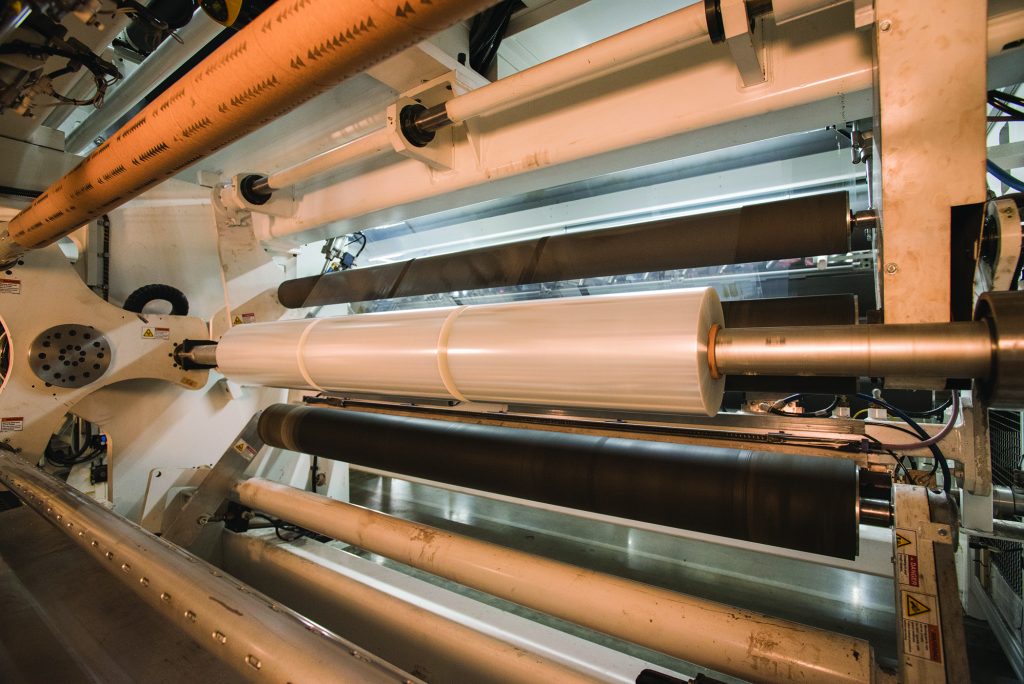 Davis-Standard’s technology and support services will be promoted at Plasticos Brazil, Hall D, booth 142 in Sao Paulo, Brazil, March 25-29, 2019. Davis-Standard will highlight key equipment capabilities for extrusion coating, blown film, cast film, sheet extrusion and thermoforming, all engineered to support a range of applications on every continent. Davis-Standard will also have information on aftermarket and technical services focused on delivering cost-efficiency, reduced downtime and improved operation. This includes equipment upgrades, replacement parts, global field services, custom engineering, research and technical services, and a 24/7 customer service hotline. Following is a summary of key technologies in Davis-Standard’s product portfolio. The company’s extrusion coating product line is a comprehensive equipment offering from a single-source supplier to address basic applications all the way up to high-speed, complex requirements. Systems are engineered for everything from high-quality flexible packaging, thermal lamination and stand-up pouches, to lidding, tube, and aseptic films. Specifications can be customized based on market requirements and investment plans.
Davis-Standard’s technology and support services will be promoted at Plasticos Brazil, Hall D, booth 142 in Sao Paulo, Brazil, March 25-29, 2019. Davis-Standard will highlight key equipment capabilities for extrusion coating, blown film, cast film, sheet extrusion and thermoforming, all engineered to support a range of applications on every continent. Davis-Standard will also have information on aftermarket and technical services focused on delivering cost-efficiency, reduced downtime and improved operation. This includes equipment upgrades, replacement parts, global field services, custom engineering, research and technical services, and a 24/7 customer service hotline. Following is a summary of key technologies in Davis-Standard’s product portfolio. The company’s extrusion coating product line is a comprehensive equipment offering from a single-source supplier to address basic applications all the way up to high-speed, complex requirements. Systems are engineered for everything from high-quality flexible packaging, thermal lamination and stand-up pouches, to lidding, tube, and aseptic films. Specifications can be customized based on market requirements and investment plans.
An example of this is Davis-Standard’s dsX flex-pack™ system. This machine provides converters and package printers with a high-value, competitively-priced package. An adaptable machine configuration gives processors the flexibility to compete in a variety of emerging application markets including salted snack and noodle bags, toothpaste tubes, personal care products, condiment packs and stand-up pouches. Production benefits include product consistency, excellent bonding strength, greater uptime and productivity, and reduced waste and production costs. The economic benefit of these 300 mpm (1,000 fpm) machines is enabling many regional converters to distinguish themselves from the competition.
In cast film, Davis-Standard offers a stretch film line that redefines modular efficiency for high-grade film operations. This technology is the new standard for stretch film line configurations. Advantages include a compact machine arrangement, ease of operation and servicing, excellent profile control, consistent roll quality and an intuitive control package. The system is engineered for producing thin films from 7.8µ to 13µ (31-to 51-gauge) at high speeds.
Davis-Standard’s side-by-side DS S3 overlapping winder is essential to this capability. The DS S3 winder enables maximum slit widths for hand-wrap, machine-wrap and jumbo rolls. All rolls are discharged on the downstream end of the winder and are conveyed to a common side of the line to simplify roll packing and future automation. Cores are also same-side loaded from the back to prevent disruption of packing activities. There is an auxiliary lay-on roll to eliminate top-wind waste during transfer, optimizing roll quality and eliminating outer wrap transfer waste. High-volume core bins minimize refilling frequency and feature a simultaneous core-set discharge of multiple core lengths to decrease cycle times, improve slit-width flexibility and net film utilization. Core widths can also be changed on the fly to maximize uptime. There is a 30-second cycle time regardless of the number of slit widths, ideal for hand-wrap products.
Specific to CPP films, Davis-Standard offers the horizontal ironing roll winder. This winder has an adjustable ironing roll which allows the converter to control the amount of air introduced into the winding roll, eliminating “tin canning,” a common issue when running CPP.
In blown film, Davis-Standard supplies extrusion systems for applications in high-barrier food packaging, agricultural films, geomembrane, stretch film, printing and laminating films, flexible packaging, collation shrink films and stretch hooders. For films that require superb clarity and flexibility, Davis-Standard offers the Aquafrost® water-quench system. Other options include industry-leading Vector® air rings, DSB® feedscrew designs, and Streamlined Coextrusion Die (SCD®), Optiflow and Vertex dies, each optimally designed to process specific films.
Davis-Standard also supplies downstream and terminal equipment as well as MDO’s, oscillating haul-offs, and winders to optimize web handling and output goals. These solutions can accommodate standard applications as well as complex substrates and structures requiring precise tension control to ensure quality while minimizing waste. Automation options are available to reduce cycle time and augment benefits from increased outputs.
In sheet extrusion, Davis-Standard supplies complete systems or components to support the packaging and industrial sectors. One recent development is the DS-Helibar® extruder. This extruder is the next generation in Davis-Standard’s groove feed extruder offering. With the Helibar design, helical grooves inside the barrel run along the entire barrel bore. This technology has shown to increase extruder output rates while improving energy efficiency and reducing barrel and screw wear. Other advantages include lower start-up costs, shorter residence time and the ability to process higher levels of regrind. This is especially beneficial for high-profile applications where speed, melt quality and efficiency are paramount.
As a complement to its sheet extrusion technology, Davis-Standard recently acquired Thermoforming Systems LLC (“TSL”) of Union Gap, Washington. TSL (www.tslusa.biz) designs, manufactures and markets thermoforming equipment to the food packaging industry.
For more information prior to Plasticos Brazil, visit www.davis-standard.com.
Photo Caption: S3 Winder with auxiliary lay-on roller.
 Davis-Standard is pleased to announce that Jay Totten has joined the company as regional account manager for converting systems, extrusion and liquid coating, serving the Midwest region. Totten will be responsible for capital equipment sales in Illinois, Indiana, Iowa, Minnesota and Wisconsin. He brings a wealth of knowledge, having previously worked at BOBST as a sales manager. Totten also has prior experience with ConQuip, Inc., Faustel, Inc. and Bostik Findley, Inc., giving him a well-rounded industry background. He is active in the Association of International Metallizers, Coaters and Laminators (AIMCAL) as a member of a technical committee.
Davis-Standard is pleased to announce that Jay Totten has joined the company as regional account manager for converting systems, extrusion and liquid coating, serving the Midwest region. Totten will be responsible for capital equipment sales in Illinois, Indiana, Iowa, Minnesota and Wisconsin. He brings a wealth of knowledge, having previously worked at BOBST as a sales manager. Totten also has prior experience with ConQuip, Inc., Faustel, Inc. and Bostik Findley, Inc., giving him a well-rounded industry background. He is active in the Association of International Metallizers, Coaters and Laminators (AIMCAL) as a member of a technical committee.
“Jay brings a tremendous reputation and experience as a recognized contributor to many converters in the region,” said Danis Roy, vice president of sales. “We are pleased to have him on our team.”
For more information about Davis-Standard’s converting capabilities, visit www.davis-standard.com/converting-systems/.
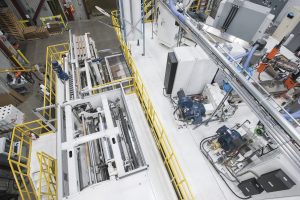 Davis-Standard’s converting technology and support services will be promoted at ICE Europe, Hall A5, booth #1310, in Munich, Germany, March 12-14, 2019. Davis-Standard will highlight key equipment capabilities for extrusion coating, liquid coating, blown film and cast film, all engineered to support a range of applications on every continent. Davis-Standard will also have information on aftermarket and technical services focused on delivering cost-efficiency, reduced downtime and improved operation. This includes equipment upgrades, replacement parts, global field services, custom engineering, research and technical services, and a 24/7 customer service hotline. Following is a summary of key technologies in Davis-Standard’s product portfolio.
Davis-Standard’s converting technology and support services will be promoted at ICE Europe, Hall A5, booth #1310, in Munich, Germany, March 12-14, 2019. Davis-Standard will highlight key equipment capabilities for extrusion coating, liquid coating, blown film and cast film, all engineered to support a range of applications on every continent. Davis-Standard will also have information on aftermarket and technical services focused on delivering cost-efficiency, reduced downtime and improved operation. This includes equipment upgrades, replacement parts, global field services, custom engineering, research and technical services, and a 24/7 customer service hotline. Following is a summary of key technologies in Davis-Standard’s product portfolio.
The company’s extrusion coating product line offers a comprehensive equipment offering from a single-source supplier to address basic applications all the way up to high-speed, complex requirements. Systems are engineered for everything from high-quality flexible packaging, thermal lamination and stand-up pouches, to lidding, tube, and aseptic films. Specifications can be customized based on market requirements and investment plans.
An example of this is Davis-Standard’s dsX flex-pack™ system. This machine provides converters and package printers with a high-value, competitively-priced package. An adaptable machine configuration gives processors the flexibility to compete in a variety of emerging application markets including salted snack and noodle bags, toothpaste tubes, personal care products, condiment packs and stand-up pouches. Production benefits include product consistency, excellent bonding strength, greater uptime and productivity, and reduced waste and production costs. The economic benefit of these 450 mpm (1,500 fpm) machines is enabling many regional converters to distinguish themselves from the competition.
In liquid coating, Davis-Standard’s curtain slide coater and five-roll silicone coater combine versatility with performance. The curtain slide coater applies single layer coatings at rates up to 853 mpm (2800 fpm) with expansion capabilities up to two additional layers. The five-roll silicone coater is capable of applying 100 percent silicone at rates up to 732 mpm (2400 fpm). This coater is constructed of stainless steel for ease of cleanup and includes a mist removal system. Davis-Standard supports liquid coating for slow or high-speed applications, clean room environments, film or paper substrates, ultra-thin and ultra-thick coatings, and precision coating and drying.
In cast film, Davis-Standard offers a stretch film line that redefines modular efficiency for high-grade film operations. This technology is the new standard for stretch film line configurations. Advantages include a compact machine arrangement, ease of operation and servicing, excellent profile control, consistent roll quality and an intuitive control package. The system is engineered for producing thin films from 7.8µ to 13µ (31-to 51-gauge) at high speeds.
Davis-Standard’s side-by-side DS S3 overlapping winder is essential to this capability. The DS S3 winder enables maximum slit widths for hand-wrap, machine-wrap and jumbo rolls. All rolls are discharged on the downstream end of the winder and are conveyed to a common side of the line to simplify roll packing and future automation. Cores are also same-side loaded from the back to prevent disruption of packing activities. There is an auxiliary lay-on roll to eliminate top-wind waste during transfer, optimizing roll quality and eliminating outer wrap transfer waste. High-volume core bins minimize refilling frequency and feature a simultaneous core-set discharge of multiple core lengths to decrease cycle times, improve slit-width flexibility and net film utilization. Core widths can also be changed on the fly to maximize uptime. There is a 30-second cycle time regardless of the number of slit widths, ideal for hand-wrap products.
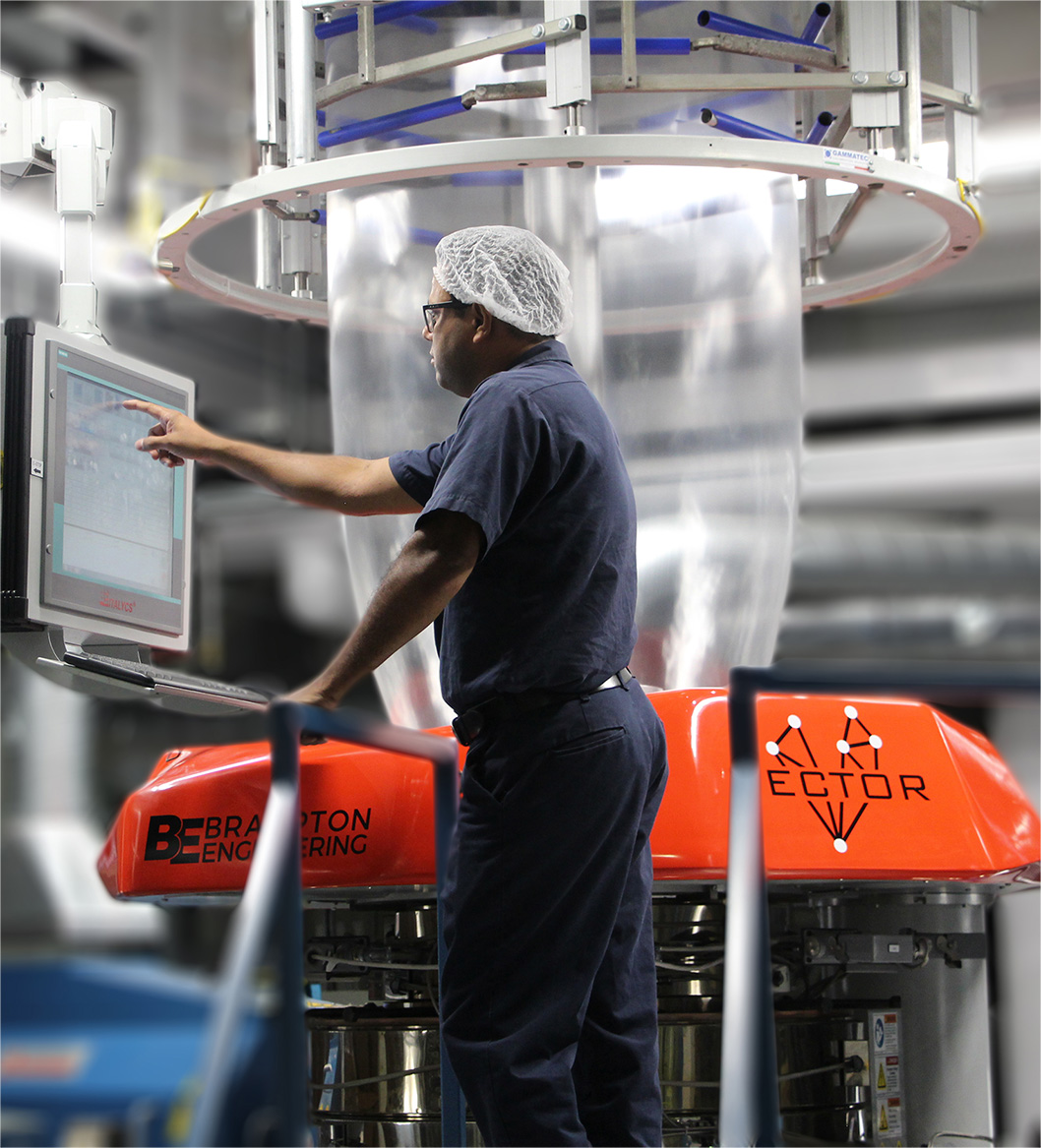
In blown film, Davis-Standard supplies extrusion systems for applications in high-barrier food packaging, agricultural films, stretch film, printing and laminating films, flexible packaging, collation shrink films and stretch hooders. For films that require superb clarity and flexibility, Davis-Standard offers the Aquafrost® water-quench system. Other options include industry-leading Vector® air rings, DSB® feedscrew designs, and Streamlined Coextrusion Die (SCD®), Optiflow and Vertex dies, each optimally designed to process specific films.
Davis-Standard also supplies downstream and terminal equipment as well as MDO’s, oscillating haul-offs, and winders to optimize web handling and output goals. These solutions can accommodate standard applications as well as complex substrates and structures requiring precise tension control to ensure quality while minimizing waste. Automation options are available to reduce cycle time and augment benefits from increased outputs.
For more information prior to ICE, visit www.davis-standard.com/converting-systems/.

Five Davis-Standard extrusion and converting experts will share their knowledge at the upcoming TAPPI course, Providing a Better Understanding of Film Extrusion Technology, in Savannah, Georgia, March 12-14, 2019. During the course, participants will gain a better understanding of common resins and equipment used, extruder through winder, in both blown and cast film applications. There will also be discussions on troubleshooting issues such as dealing with gels and winding defects. Davis-Standard instructors will cover topics related to equipment technology along with other industry experts from leading companies. Following is a listing of Davis-Standard presentation topics, presentation times and brief biographies.
Rich Kanarski, Davis-Standard Extrusion Process Engineer
Topic: Extruders and Configurations for Blown vs. Cast, March 12, 2:45-3:30 p.m.
Rich Kanarski specializes in process development of larger-scale polymer converting lines, including single screw extrusion technology and upstream and downstream technologies related to cast film and extrusion coating products. He has worked on projects around the world, gaining valuable insight through collaboration with a vast network of polymer professionals and industrialists. Rich has been a member of the SPE Extrusion Division for more than seven years and currently serves on their board of directors.
Lou Piffer, Davis-Standard Sr. Sales Engineer, Extrusion Coating, Solution Coating and Cast Film
Topic #1: Film Casting Section Configurations, March 13, 10:00-10:45 a.m.
Topic #2: Gel Troubleshooting in Blown & Cast Film, March 14, 12:45-1:30 p.m.
With nearly 30 years of industry experience, almost all of those with Davis-Standard companies, Lou Piffer brings a wealth of knowledge related to the topics of extrusion coating, cast film, blown film and solution coating. This is his second year teaching at this specific TAPPI course, but he has presented at the TAPPI Extrusion Coating Course for over 20 years. Lou is a former TAPPI chairman, TAPPI Leadership Award winner and recipient of the Davis-Standard President’s Award.
Dr. Laura Martin, Director of Technology, Brampton Engineering
Topic: Air Rings for Blown Film Production, March 13, 12:45-1:30 p.m.
Laura brings a range of polymer experience to her role as Director of Technology for Brampton Engineering. She works in product development and on process teams for projects including the new Vector® Air Ring. With a background in chemical engineering, she has industry expertise in numerous technical and market segments including injection molding, blow molding, profile extrusion and extrusion lamination. Her first industry presentation won a best student paper award at the SPE’s ANTEC over 30 years ago. This is her second time teaching this section of the TAPPI course.
Bill Hellmuth, Davis-Standard Product Group Director, Blown Film
Topic: Blown Film Haul-Off Systems, Collapsing Frames and Bubble Cages, March 13, 1:30-2:15 p.m.
Bill Hellmuth offers engineering, production management, technical sales and marketing expertise having worked for four decades in the blown film industry. He is a member of the TAPPI PLACE Division and has published several papers on blown film equipment and processing for training and seminars around the world. He has co-chaired the TAPPI Film Extrusion and Coextrusion Short Course, is a past chairman of the TAPPI film extrusion committee, and received an honorable mention for his training session entitled “Extrusion Troubleshooting.”
Duane Smith, Davis-Standard Product Manager of Specialty Winding
Topic: Challenges of Web Handling and Winding in Cast & Blown Film, March 14, 2:15-3:00 p.m.
Duane Smith has over 45 years of industry experience, and is known throughout the global paper, film and nonwoven industries for his technical knowledge in web handling and winding. He has been awarded two winding patents, has made over 85 technical presentations, published numerous articles, and is the author of two books through TAPPI Press. He edited the first TAPPI Press e-book, The Ultimate Roll and Web Defect Troubleshooting Guide. Duane’s contributions have earned him two TAPPI Technical Awards and he is a TAPPI Fellow.
To register for the Blown and Cast Film Extrusion course, visit https://www.tappi.org/Events/Event-Calendar/Blown-and-Cast-Film-Extrusion-Course/
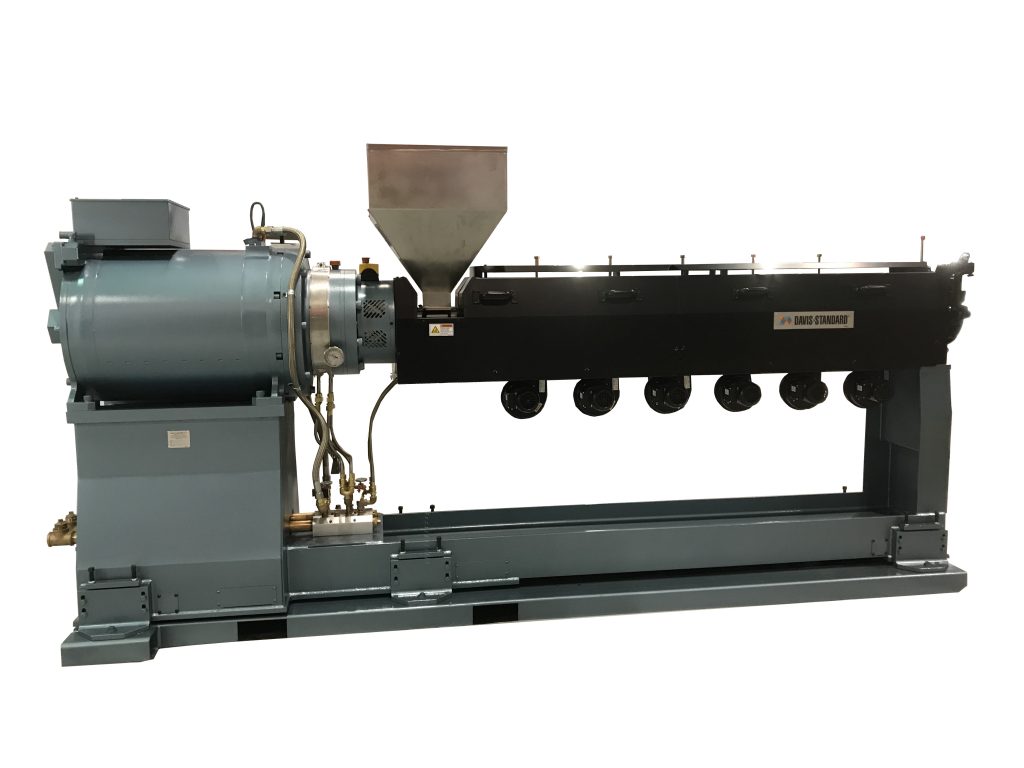
The Davis-Standard Technical Center has announced two exciting additions to its lab capabilities in Pawcatuck, Conn. By the end of the first quarter, Davis-Standard will offer trials for its Davis-Standard Helibar® groove feed extruder and the DS Activ-Check control system for continuous extruder monitoring. According to John Christiano, Davis-Standard’s Vice President of Extrusion Technology, both present new opportunities for customers to improve and strengthen processes.
“These technologies have been proven in the field and we’re pleased to offer experimentation in our technical center,” said Christiano. “We are firm believers in partnering with customers to make processes better and in maximizing their capital investments. I am eager for customers to use both the Helibar and DS Activ-Check in establishing performance baselines during real-world trials.”
The Helibar extruder is the next generation in Davis-Standard’s groove feed extruder offering. The dimensions of the extruder in the lab will be 65mm with a 36:1 L/D. With the Helibar design, helical grooves inside the barrel run along the entire barrel bore. This technology has shown to increase extruder output rates while improving energy efficiency and reducing barrel and screw wear. Other advantages include lower start-up costs, shorter residence time and the ability to process higher levels of regrind. Christiano noted this is especially beneficial for high-profile applications where speed, melt quality and efficiency are paramount.
The DS Activ-Check system will be mounted on a 4.5-inch (114mm) extruder. Using a continuous monitoring platform, the DS Activ-Check strengthens preventative and predictive maintenance for extruder operation. Operators are able to monitor key mechanical and electrical components of the extruder and gearbox and receive early notification of potential component failure to prevent unscheduled downtime. Users can obtain notifications via e-mail and text, and can remotely monitor conditions via smart devices or remote PCs. Users also benefit from the collection of operational data, leading to significant cost-cutting opportunities.
John Clemens, Davis-Standard’s Director of Extrusion Controls, added, “The capability to monitor extrusion line variables such as mechanical and electrical system conditions is essential in order to bring products to market faster. I look forward to customers having the opportunity to test the many advantages of this system for both extrusion and converting processes.”
Both technologies will be available to customers by the end of the first quarter. If interested in scheduling a trial, please contact marketing@davis-standard.com.
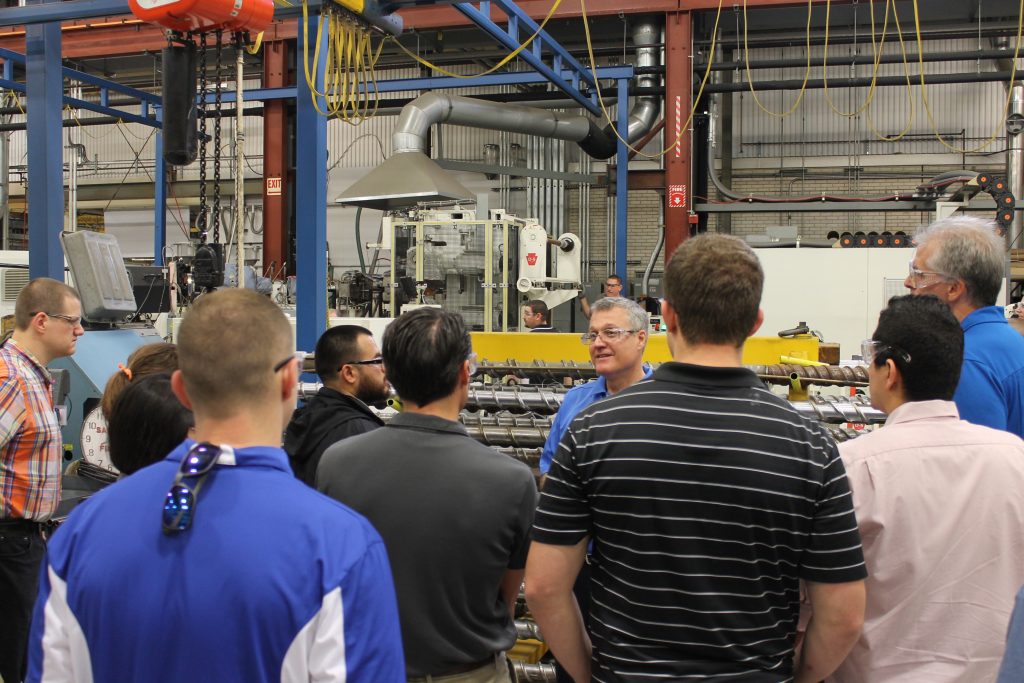 Davis-Standard will be offering its popular extrusion seminar, “The Basics of Plastics Extrusion,” on April 9 – 10, 2019 at its headquarters in Pawcatuck, Conn. The two-day class covers the fundamentals of plastics extrusion, as well as the composition and properties of various polymers and the mechanics of essential downstream processes. Seminar topics include extruder components, temperature control, maintenance and screw design.
Davis-Standard will be offering its popular extrusion seminar, “The Basics of Plastics Extrusion,” on April 9 – 10, 2019 at its headquarters in Pawcatuck, Conn. The two-day class covers the fundamentals of plastics extrusion, as well as the composition and properties of various polymers and the mechanics of essential downstream processes. Seminar topics include extruder components, temperature control, maintenance and screw design.
In addition to instruction, course participants will tour Davis-Standard’s Technology Center and manufacturing facility, and will have access to polymer process engineers and technical specialists. The fee is $750 per person with a 10 percent discount given for groups of three or more. Course books and materials are included, and class size is limited to promote student and teacher interaction.
For enrollment details or more information about this seminar, contact Nichole Denerley at ndenerley@davis-standard.com.
